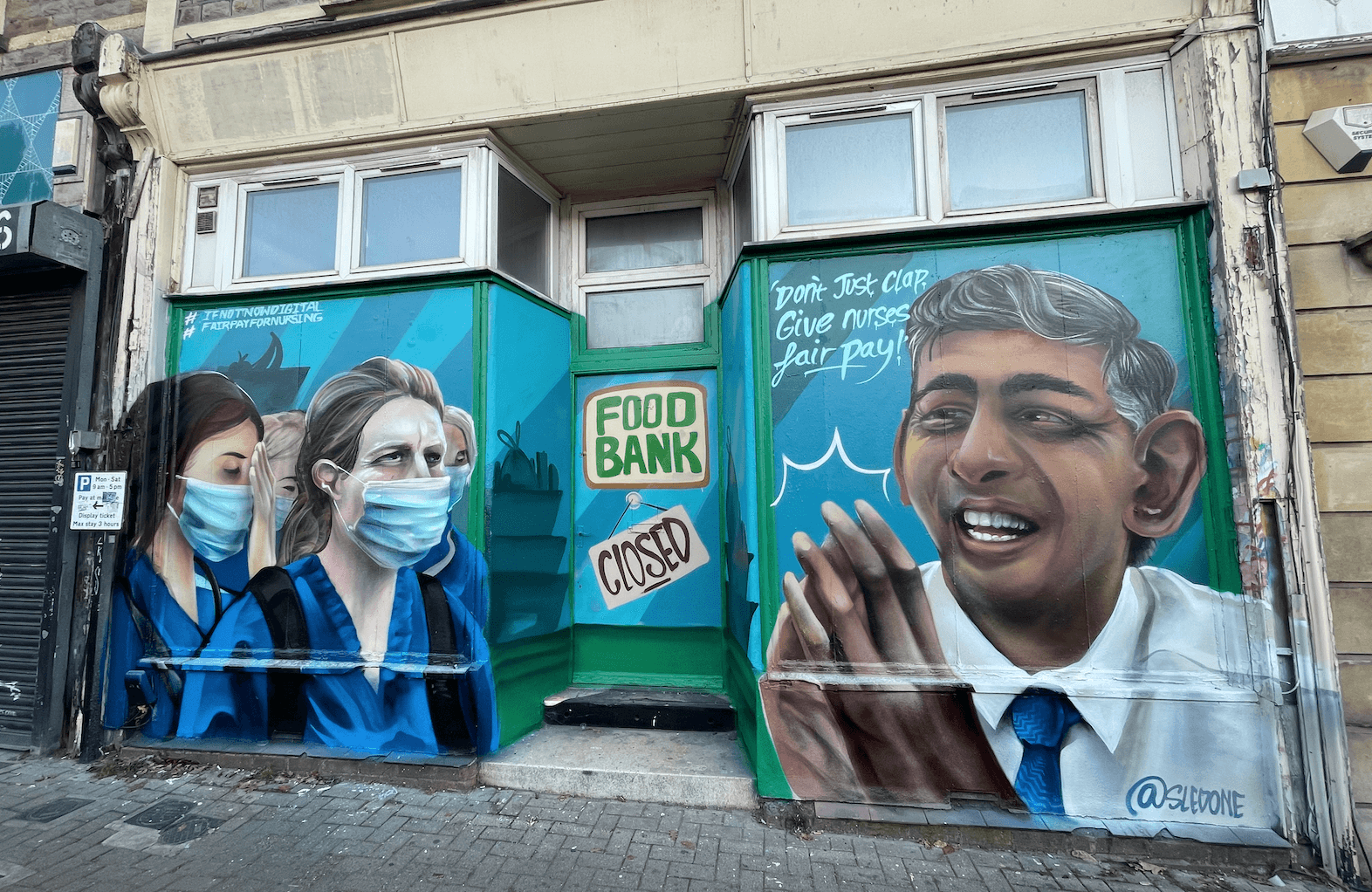British PM Rishi Sunak said on Sunday that he was open to discussing recommendations for a pay hike for nurses in the public sector ahead of his Monday meeting with public sector healthcare workers’ trade union leaders.
Speaking to BBC, Sunak said, “We want to have a reasonable, honest, two-way conversation about pay.” To this end, he assured he was willing to discuss the healthcare workers’ demands and other general concerns.
Sunak said he wanted to host discussions with the unions before the “new pay settlement round” for 2023-2024 begins and ensure that the workers understand where the government is coming from.
However, he did not rule out a prospective settlement for 2022-2023, indicating that the government was open to discussions about increasing pay immediately. According to The Guardian, ministers are looking into a “one-off” payment to the workers to help them overcome the rising cost of living during the winter. Nurses have received a 4.75% rise in pay, which they say is insufficient to deal with the increasing cost of living.
Nurses deserve a decent pay rise.
— Jeremy Corbyn (@jeremycorbyn) January 8, 2023
The alternative is an exodus of healthcare professionals and the end of the NHS as we know it.
Those who say we can't afford to meet the demands of striking workers are wrong. The truth is: we can't afford not to. pic.twitter.com/sPIyz8f2iB
The head of the Royal College of Nursing workers’ union, Pat Cullen, celebrated the “chink of optimism” due to the PM’s “little shift” in stance. She said last week that the nurses were willing to meet the government “halfway” and accept a 10% pay rise as opposed to the original demand of 19% that the government declared to be “unaffordable.”
However, the opposition Labour Party and the ambulance workers’ Unite the Union questioned Sunak’s intentions and accused him of taking the unions “for fools” by making misleading comments. They claim that the government does not truly intend to negotiate this year’s pay, given that Sunak previously said he would only negotiate salary for next year.
HEALTH CARE REFORMS
In the run-up to Monday’s meeting, Sunak also met with healthcare experts from across the country for the National Health Services (NHS) Recovery Forum on Saturday. It sought to address four critical issues – social care and delayed discharge, urgent and emergency care, elective care, and primary care.
The meeting discussed “crucial challenges” amid reports of bed shortages forcing patients to spend days on trolleys. The British PM celebrated the healthcare workers’ “boldness and radicalism” through the “tough time” in the pandemic. In addition, he admitted that “business as usual” will not be able to “fix the challenges” the NHS faces today.
A PM Office release said that the government has already deployed $608 million to expedite hospital discharge and increase bed capacities by 7,000. The NHS also set up virtual wards across England that allow patients with acute respiratory illnesses to be treated with telemedicine and pulse oximeters, saving 55,000 ambulance calls.
Today I hosted the NHS Recovery Forum in Downing Street with clinical leaders, health experts and ministers.
— Rishi Sunak (@RishiSunak) January 7, 2023
We are determined to ease pressure on the NHS, ensure better care for patients and deliver our promise to cut waiting lists ⤵️ pic.twitter.com/0EeiukXRrl
NHS WORKERS’ PROTESTS
In December, around 100,000 nurses launched a historic strike at 76 hospitals and health centres across England, Wales, and Northern Ireland, demanding a 19% pay hike. The strike resulted in the cancellation of 70,000 appointments, procedures, and surgeries in the UK’s state-funded NHS.
This is only the second time that the healthcare workers have conducted a strike action in its 106-year history. In fact, it had a no-strike policy until 1995. However, in 2014, nurses walked out in England over a pay dispute, and then again in 2019, in Northern Ireland.
Eventually, other healthcare workers, including ambulance workers, joined the protests, highlighting staff shortages and increased workload amid the winter flu.
"I do not wish to prolong this dispute, but the Prime Minister has left us with no choice."
— The RCN (@theRCN) December 23, 2022
Members in England will continue our strike action on 18 & 19 January 2023.
Read more below. #FairPayForNursing https://t.co/dKUX593YXp
The protests remain temporarily suspended over the coming few weeks amid the government’s offer to negotiate this year’s pay. Nurses’ strikes will resume on 18 and 19 January, while ambulance workers will continue their protests on 23 January.
The British NHS promises free healthcare for all its citizens. However, the COVID-19 pandemic highlighted the dire underfunding of the institutions, which has caused strain on its workers and resulted in patients complaining of inadequate services.
While PM Sunak has blamed the COVID-19 crisis for the breakdown of the NHS, the waiting lists at public health services were over 4 million even before the pandemic hit.

